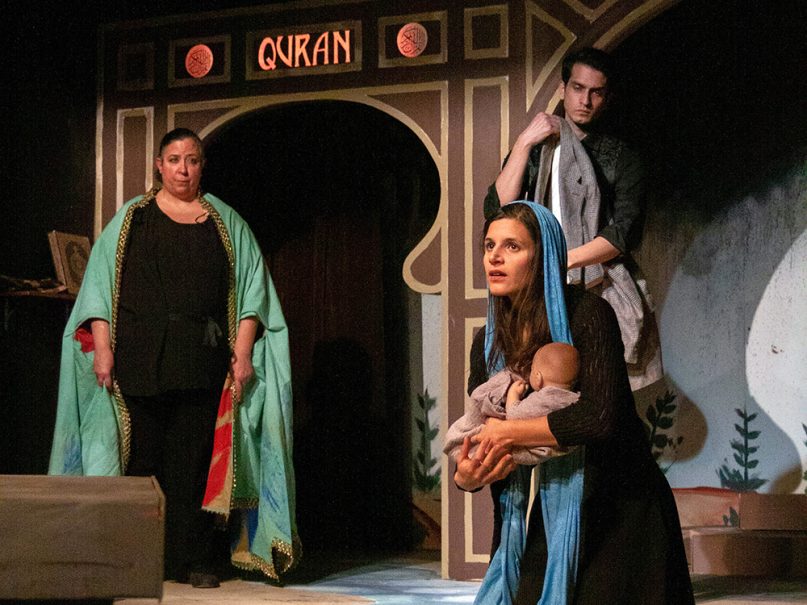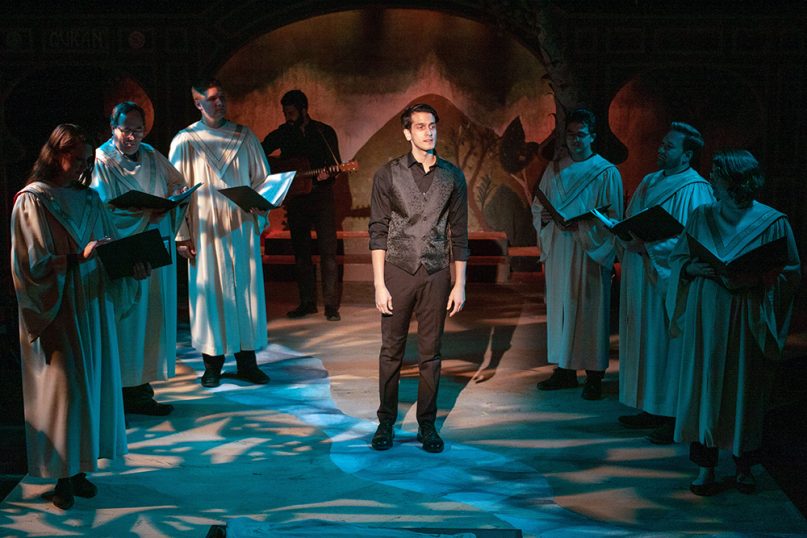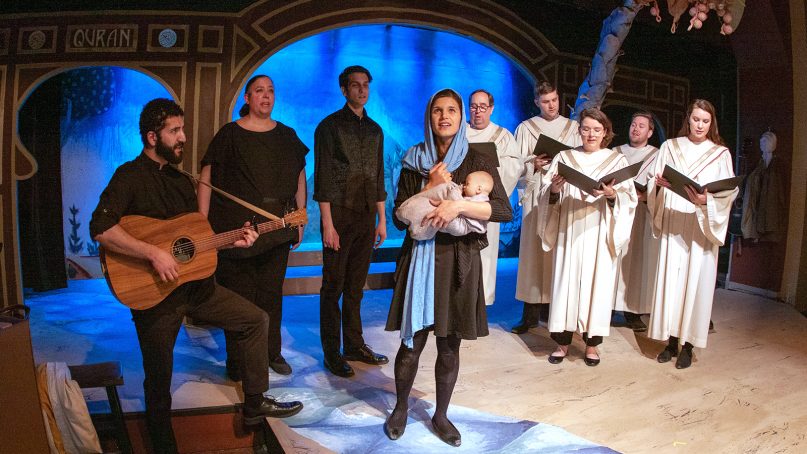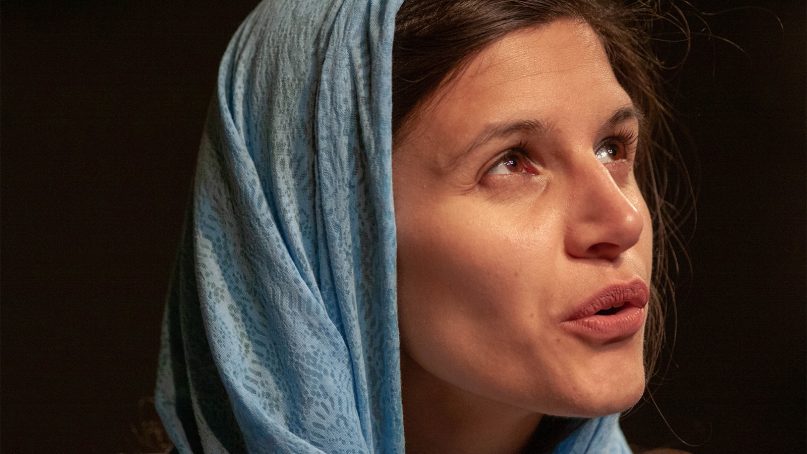(RNS) — Christmas Mubarak! A beautiful Christmas greeting from Muslims to Christians. In Arabic, mubarak means “blessed.”
So I was taken aback when “Christmas Mubarak,” a new play produced by my theater company in Chicago, unleashed right-wing anger on social media.
How can Muslims and Christians build bridges of understanding? So often conversations focus on that which divides us. I attempted to produce a conversation built on all that we share.
While those who attended the play found it both informative and inspirational, those commenting online didn’t need to see the show to have an opinion.
Some thought the play, which presents the story of Mary and Jesus as told in the Quran with musical accompaniment by a Methodist church choir, to be the end of times as predicted in “Chronicles of Narnia”: An attempt to create one world religion (“Chrislam”) so as to eliminate differences between faiths and dilute their respective meanings.

Mary and baby Jesus are portrayed in a scene from “Christmas Mubarak.” Photo by Airan Wright/Silk Road Rising
Others thought it was blasphemous and anti-Christian. How could we stage a play that depicts Jesus as Muslims know him, a holy prophet and not the son of God? The divinity of Jesus comes shining through in the Christian songs we performed, yet the tired old trope of “War on Christmas” still got trotted out. It’s odd to consider a play whose title means “Blessed Christmas” to be a war on Christ.
RELATED: A new play, ‘Christmas Mubarak,’ mixes Christian and Muslim stories of Jesus’ birth
Others thought the play was an attempt to convert Muslims to Christianity. After all, our play is being produced in a building owned by a church.
If the deluge of anti-play sentiment had remained online, I’d be less worried. But when emails started being sent to the Methodist church that hosts our theater and to the organization that sends us volunteer ushers, it had gone too far.
All the emails we received were blatantly Islamophobic — almost as if these canned sentiments had been generated by professional Islamophobes.
In Islam, we recognize two significant miracles: One is the virgin birth of Jesus. The other is the revelation of the Quran to the Prophet Muhammad, a man who was illiterate. The first word of the Quran is “Read.” The angel Gabriel who brought the Quran to Muhammad also had brought glad tidings to Mary.
How many people know that Mary is the only woman named in the Quran? And not just named, but mentioned more often in the Quran than in the New Testament? In fact, there’s a whole chapter named after her.
How many people know that Jesus’ miraculous birth is accepted in the Quran — and that it is incumbent on all Muslims to accept Jesus as a prophet if they are to be considered Muslim?

Micah Hilson, center, performs in a scene from the Silk Road Rising production of “Christmas Mubarak” at the Chicago Temple in Chicago. Photo by Airan Wright/Silk Road Rising
The Islamic world and Islamic literature are full of stories about Jesus and his numerous miracles. Yes, he walks on water. Yes, he heals the blind and the lepers. Yes, he can turn clay into a living bird.
These miracles signal for Muslims the miraculous nature of Christ as God’s prophet and messenger.
Our play elucidates some theological differences: We Muslims believe Jesus ascended to God; he was not crucified. But what is wrong with us not thinking he died for our sins? We believe that God would not punish his elite prophet in such a way.
God says in the Quran, “We have created you from a single pair of male and female, and made you into nations and tribes, that you may know each other not that you may despise each other.”
In today’s America, that means we need to hear each other’s stories.
Silk Road Rising, my theater company, believes its purpose is to unleash curiosity. Our core aim with each of our productions is to help viewers open up to a new possibility, to permit them to set aside their beliefs for a moment and consider something else.
When the anti-Muslim personalities began to perpetuate lies online against “Christmas Mubarak,” I realized that God’s word, “We have … made you into nations and tribes, that you may know each other not that you may despise each other,” was revealed for this very moment.
For Muslims, as for Christians, the word of God is a continual revelation. It is not a historic text but one that continues to inspire the better person who resides within us.
As we approach Christmas, let us make a commitment to know each other. Hello, my name is Malik. I believe in the miraculous birth of Christ. Let me tell you more.

The full cast and choir sing in the Silk Road Rising original production of “Christmas Mubarak” at the Chicago Temple in Chicago. Photo by Airan Wright/Silk Road Rising
(Malik Gillani is the founding executive director of Silk Road Rising in Chicago. The views expressed in this commentary do not necessarily represent those of Religion News Service.)





